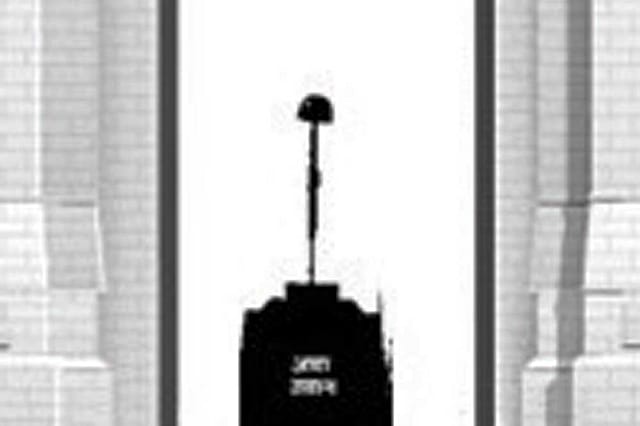Muslim Politics in India

HAMID DALWAI WAS a trenchant critic of Indian Muslims. He had the courage to call out their obscurantism, stubborn refusal to embrace a secular, modern outlook in personal and public conduct. Expectedly, for his labours, he was ostracised and abused by his co-religionists. Undeterred, he stuck to his mission to reform and modernise Indian Muslims, imploring them to shed their separatist mentality. With that objective in view, he formed the Muslim Satyashodhak Mandal. An admirer of Ram Manohar Lohia, he became an activist of the Socialist Party. He even took out a rally of Muslim women in what was then Bombay to demand a uniform civil code.
Though he died in 1977 when only 44, his campaign for reforming Muslim society sounds as valid today as it was over half-a-century ago. Taking up cudgels against Triple Talaq, separate Sharia-based personal law, prioritising of religion over nation, etc, made him a figure of hate for orthodox mullahs and maulvis who had captured the popular Muslim mind.
You can read the progressive views of this rare Muslim who had challenged the stranglehold of the mullah-maulvi combine on Indian Muslims in a 'new' book published recently by Penguin. Muslim Politics in India is based on the writings by Dalwai and also his conversations with the well-known Marathi poet Dilip Chitre. Dalwai himself was a fluent writer in Marathi, living on the meagre income of a journalist.
Imran Khan: Pakistan’s Prisoner
27 Feb 2026 - Vol 04 | Issue 60
The descent and despair of Imran Khan
Published first in 1968, Muslim Politics in India was brought out in 1972 by Hind Pocket Books under the title Muslim Politics in Secular India. Publishers of the latest edition have inexplicably omitted 'secular' from its title, though it further enlarges the contents by carrying the conversations that Dalwai had with Chitre.
Lest you question the enduring significance of the book, no other than Ramachandra Guha in his 2010 book, Makers of Modern India, had enlisted Dalwai among such luminaries as Raja Ram Mohan Roy, Syed Ahmad Khan, Jyotirao Phule, Rabindranath Tagore, Muhammad Ali Jinnah, Jawaharlal Nehru, Ram Manohar Lohia, Jayaprakash Narayan, etc.
Anticipating questions about Dalwai's inclusion among the notables, Guha had written: "Dalwai's main interest, and perhaps obsession, was with changing the attitudes of Indian Muslims towards democracy and modernism… He wished to erase communal markers and distinctions in public life, in pursuance of a common citizenship for all Indians in a genuinely secular and democratic nation… There was nothing apologetic about Hamid Dalwai, whose modernism was militant and uncompromising…"
Reproducing the above tribute to Dalwai by Guha was meant to allow readers to judge for themselves the validity of his trenchant criticism by Talmiz Ahmad. In his review for a self- avowedly anti-RSS-BJP website, the former career diplomat is so hostile to Dalwai that he doesn't even spare the publisher for republishing the "ill-informed fulminations of the long-forgotten" Dalwai.
Without offering a rational counter to Dalwai's views of Indian Muslims, the reviewer nonetheless viciously questions his credentials, his lack of formal education, knowledge of Islam the faith. Above all, he excoriates him for ignoring Hindu communalism, the effort to shape a separate Hindu identity. Ahmad seeks to rationalise Muslim separateness, saying that organisations like RSS and Arya Samaj, too, advanced a Hindu-specific agenda. In short, nix all criticism of Muslim communalism, their medieval traditions and neglect of modern education in favour of the madrassa indoctrination.
Muslim opinion has hardened further since the time Dalwai first undertook to reform his religion. Islamic zealots rule over the collective thinking of the Muslim ummah. As Dalwai said then, and as it is true today, rare is an educated Muslim willing to stand up against the purveyors of conservatism and medieval tradition in the name of their faith. Consider the continuing resistance to a common civil code, modern education and dress for Muslim women, etc.
Above all, consider the diametrically opposite views on Dalwai from a well-regarded historian, whose anti-Sangh Parivar credentials are irreproachable, and a former career diplomat. Which reminds us of another career diplomat, the late Syed Shahabuddin. After retirement, he had become a champion of Muslim extremism, opposing court-granted relief to Shah Bano, demanding a ban on The Satanic Verses, challenging the Ram Janmabhoomi claim on the disputed Ayodhya site. One can go on in this vein, only to wonder aloud why seemingly well-educated Muslims find it necessary to provide sustenance to the most reactionary impulses of their community.
